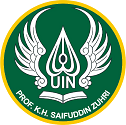The Role of Islamic Philanthropy and Sustainable Development (SDGs) Achievements in Kebumen Regency, Central Java
DOI:
https://doi.org/10.24090/icip.v1i1.849Keywords:
goal development sustainability, multi-sector role, philanthropy IslamAbstract
This study aims to study achievements objective suistainable development goals in Kebumen Regency and analyze the role of philanthropist Islam in SDGs achievements. The method used is an analysis of descriptive qualitative and review literature from various supporting references covering Report SDGs Achievements Kebumen Regency, Strategic Environmental Assessment of RPJMD Kebumen Regency, and various source articles or results supporting research theme study. Research results show SDGs achievements in the Kebumen Regency have involved multi-sectoral roles like government regions, sector private sector, academia, and philanthropy. Achievement of 16 SDG goals and 221 SDGs indicators in the Kebumen Regency consists of 98 indicators (44%) already achieved, 37 indicators (17%) have not achieved and there are 63 SDGs indicators (28%) that are not / have not been there is data. Baznas Regency Kebumen and LazisNU Kebumen own roles important in supporting the achievements of eight SDGs goals include without poverty, without hunger, life healthy and prosperous, quality education, clean water and sanitation, job worth and growth economy, reduced gap as well as cities and settlements sustainable.
References
Al Faqih, N. I. H., & Masitoh, U. F. M. (2020). Efektifitas Pengelolaan Zakat Produktif di Baznas Kabupaten Kebumen terhadap Perubahan Kesejahteraan Mustahik. JURNAL LABATILA, 3(02), 27–61. https://doi.org/10.33507/lab.v3i02.238
Amar, F. (2017). Implementasi Filantropi Islam di Indonesia. Al-Urban: Jurnal Ekonomi Syariah dan Filantropi Islam, 1(1), 1–14. https://doi.org/10.22236/alurban_vol1/is1pp1-14
Bappeda Kab. Kebumen. (2020). Laporan Tahunan SDGs Tahun 2019. Bappeda Kab. Kebumen.
Bappeda Kab. Kebumen. (2021). Kajian Lingkungan Hidup Strategis RPJMD Kab. Kebumen Tahun 2021—2026. Bappeda Kab. Kebumen.
Baznas. (2023). Laporan Keuangan dan Laporan Auditor Independen BAZNAS [Laporan Keuangan]. Badan Amil Zakat Nasional.
Fajri, K. S. (2016). Peranan Lembaga Filantropi dalam Penanggulangan Kemiskinan di Kabupaten Kebumen (Studi Kasus pada LazisNU Kabupaten Kebumen [Skripsi]. UIN Sunan Kalijaga Yogyakart.
Fauzia, A. (2010). Religious Giving di Indonesia Studi Kasus Filantropi Islam. Dialog, 69, 51–64.
Hayati, F., & Soemitra, A. (2022). FILANTROPI ISLAM DALAM PENGENTASAN KEMISKINAN. E-Mabis: Jurnal Ekonomi Manajemen dan Bisnis, 23(2), 109–121. https://doi.org/10.29103/e-mabis.v23i2.866
Hermantoro, B. & Zuraidah. (2023). Peranan Lembaga Filantropi Rumah Zakat dalam Tujuan Pembangunan Berkelanjutan (Sustainable Development Goals / SDGs) Di Kota Kediri. Istithmar, 7(1), 42–49. https://doi.org/10.30762/istithmar.v7i1.606
Kementerian Perencanaan Pembangunan Nasional/ Badan Perencanaan Pembangunan Nasional. (2019). Peta Jalan SDGs di Indonesia. Kementerian Perencanaan Pembangunan Nasional/ Badan Perencanaan Pembangunan Nasional.
Laziznu PBNU. (2023). Annyal Report 2022 Bakti untuk Sesama NU Care-Lazisnu [Laporan Keuangan]. Lazisnu PBNU.
Lutfyah, C., Vernanda, P., Wati, A. A., Rahmadhiyanti, D., Samantha, N., & Faujiah, A. (2021). PERAN FILANTROPI DI MASYARAKAT (Studi Analisis terhadap konsep dalam Sistem Ekonomi Sosialisme dan Sistem Ekonomi Syariah). 2.
Masuda, H., Kawakubo, S., Okitasari, M., & Morita, K. (2022). Exploring the role of local governments as intermediaries to facilitate partnerships for the Sustainable Development Goals. Sustainable Cities and Society, 82, 103883. https://doi.org/10.1016/j.scs.2022.103883
Moleong, L. J. (2018). Metodologi Penelitian Kualitatif. PT. Remaja Rosda Karya.
Muhammad, A. H. (2023). Strategi BAZNAS Kabupaten Kebumen dalam Meningkatkan Kesadaran Berzakat pada ASN di Kabupaten Kebumen [Skripsi]. UIN Prof. K.H. Saifuddin Zuhri.
Okitasari, M., Prabowo, M. H., & Santono, H. (2020). Multi-Stakeholder Partnerships: A Tangible Instrument to Support the Implementation of the 2030 Agenda at the Local Level.
Pattberg, P., & Widerberg, O. (2016). Transnational multistakeholder partnerships for sustainable development: Conditions for success. Ambio, 45(1), 42–51. https://doi.org/10.1007/s13280-015-0684-2
Pohan, S. H., & Rianto, H. (2022). SUSTAINABLE DEVELOPMENT GOALS (SDGS ) SEBAGAI BASIS PROGRAM PENYALURAN ZAKAT.
Reddy, P. S. (2016). Localising the sustainable development goals (SDGs). 9(2).
Saripudin, U. (2016). FILANTROPI ISLAM DAN PEMBERDAYAAN EKONOMI. BISNIS : Jurnal Bisnis dan Manajemen Islam, 4(2), 165. https://doi.org/10.21043/bisnis.v4i2.2697
Sugiyono. (2013). Metode Penelitian Kualitatif dan Kombinasi. Alfabeta.
Yulianti, Y., Afiah, K. N., Pamungkas, N. C., Berlianti, D. A. P., & Aulia, R. S. (2022). Potret Filantropi Islam Terbesar di Indonesia. Jurnal Ilmu Sosial Indonesia (JISI), 3(1). https://doi.org/10.15408/jisi.v3i1.24995








